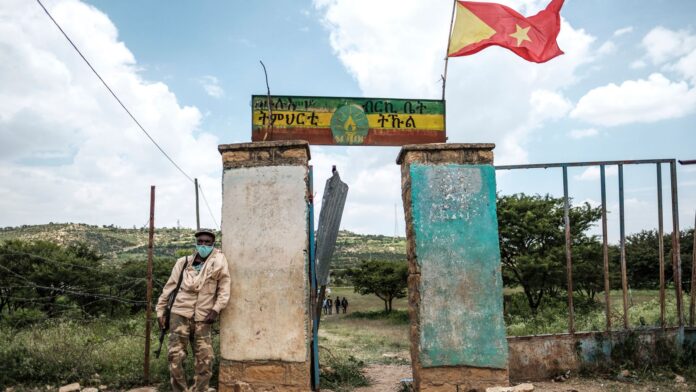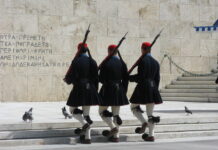![]()
Exactly two years ago, Prime Minister Abiy Ahmed of Ethiopia postponed elections due to the impending COVID-19 pandemic. Abiy’s decision sparked a series of events that led to a war involving ethnic cleansing and genocide. Today, with much of the focus on Ukraine, the war in Ethiopia has somewhat left the public eye. Ethiopia, however, is the world’s 12th most populous country. It lies in a strategically crucial area, but its politics have received far less attention than they deserve.
Background
From 1974 to 1991, the communist Derg regime was in power. This regime was countered by a coalition of Tigrayan, Oromo, Amhara, and other insurgent groups. Of these, the Tigray People’s Liberation Front (TPLF) was the most influential and installed itself in government for 25 years. This finally ended with the election of Abiy Ahmed, an ethnic Oromo, as prime minister.
Many of Abiy’s policies in power, though, have antagonized Tigrayan officials. In an anti-corruption drive, numerous TPLF officials were denounced for financially exploiting government systems. Abiy removed numerous Tigrayan leaders from their roles in the military and intelligence agencies. Additionally, he instituted constitutional changes that much of Tigray’s populace opposed.
Tigrayan leadership cites an attack on the sovereignty of the Tigray region as the official cause of war. However, the TPLF and the Oromo Liberation Army (OLA) both have financial interests that some have argued motivated the participation of both in armed conflict. For example, Jaal Maroo, the leader of the OLA, claims his people have been exploited by the federal government. The TPLF also opposed its removal from power, since its main source of wealth is the Endowment Fund For the Rehabilitation of Tigray (EFFORT), a collection of numerous firms that have relied in part on government contracts.
The War
The war began when the Tigray Defense Forces (TDF) directed by Tigray’s president, Debretsion Gebremichael, attacked government troops in the region. Abiy’s government retaliated by invading the region and driving the TDF out of its cities. During this time period, federal forces notably worked with Eritrea, with whom Ethiopia had recently signed a peace treaty. Following their expulsion, the TDF retreated to the mountains where they launched a guerrilla campaign.
In the summer of 2021, Tigrayan forces began a counterattack and retook the regional capital of Mek’ele. They then continued their advances and nearly reached the capital of Addis Ababa in November. Foreigners fled the city as Prime Minister Abiy declared a state of emergency and visited the front lines in person. The OLA and other separatist groups aided the TPLF in its march on Addis Ababa. Only a last-minute government counteroffensive halted the rebels’ advance, and TPLF forces withdrew to Tigray. Tensions have abated in recent months, and Abiy’s government recently enacted a truce to allow humanitarian aid into Tigray.
Why the War Matters
The war is important for several reasons. First, Abiy recently won a Nobel Prize for his work in ending the decades long conflict with Eritrea. He was also viewed as a potential model for democratically elected leaders in Africa. Abiy’s image as a reformer who could fix Ethiopia’s problems and promoter of peace was a symbol of hope for the country. The war has dimmed a rising star on the African continent.
Second, Ethiopia has a history of ethnic cleansing and humanitarian disasters. This conflict has seen many alleged instances of ethnic violence on both sides. Supply blockades have led to a humanitarian crisis and starvation in Tigray. Officials have seen reports of rape as a weapon of war. These crises should be dealt with—and their victims treated— to prevent large scale death and human suffering in the future.
Finally, many saw Ethiopia as a rising power in an extremely important region. Ethiopia may be landlocked, but it is far from isolated. Its physical size, growing population, and economic sway primed it for status as a regional power. Furthermore, it made geopolitical news with the construction of the Aswan Dam. With the war, Ethiopia must turn its focus inward and prioritize security concerns over other ambitions.
Fortunately, the civil war in Ethiopia appears to be dying down, but it should not take a backseat to Ukraine. While conflicts in Africa may not get as many headlines as a war involving Europe or the U.S., it is important to be aware of the ongoing crises anywhere in the world that bear equally significant consequences.











